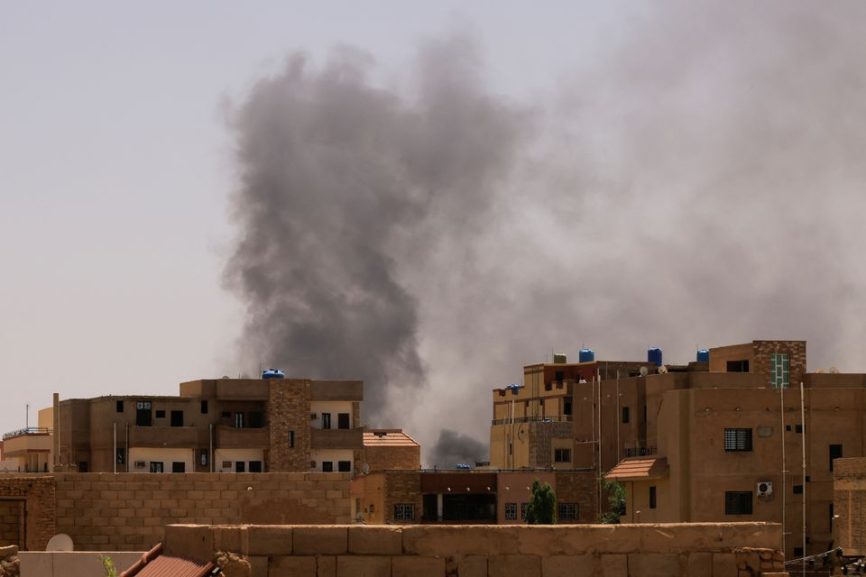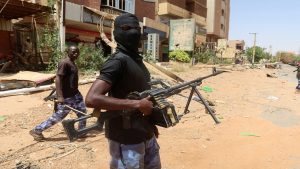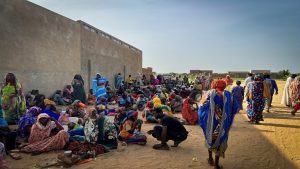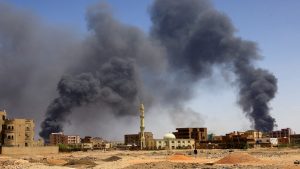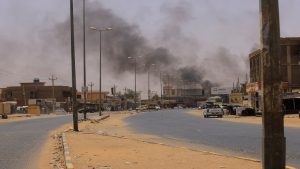Residents of the chaos-stricken Sudan still see no substantial improvements to their daily life and have a slim hope of ceasing fire.
Sporadic clashes continue in Sudanese capital Khartoum, despite the newly-reached agreement between the Sudanese Armed Forces (SAF) and the paramilitary Rapid Support Forces (RSF) to protect civilians and ensure humanitarian assistance.
The warring parties in Sudan signed a preliminary agreement in the Saudi port city of Jeddah on Thursday, committing to prioritizing discussions to achieve a short-term ceasefire to facilitate the delivery of emergency humanitarian assistance and restoration of essential services.
“The reality is that there was no ceasefire after the agreement was signed. The conflict continues as usual,” said Marwan Diab, a resident in Khartoum.
“We are still seeing a lot of violation of the agreement, such as the killing of civilians, the destruction of hospitals, and so on. For me, the agreement is just empty talk, and it’s hard to believe that it will help with ceasefire,” said Mohamed Youssef, another resident.
Heavy fighting continues in Sudan:
Since the conflict between the two fractions started in April, Khartoum has suffered from unstable power and water supplies. Shortages of medical supplies and manpower have severely impacted local residents, trapping them in a deep humanitarian crisis.
“As for electricity, some neighbourhoods have power, while others do not.
About 35 percent to 40 percent of neighbourhoods do not have water or electricity, or see interrupted supplies of water and power,” said Youssef.
“Water and electricity are still shut off in many places, and even medical services are suspended. If residents go to hospital, they will find the shortage of medical materials and the shortage of manpower. They may be told that no doctor is available, or the bandages have run out, or there is a blood shortage. These have disrupted our daily life, and everybody is living in an abnormal situation,” said Youssef Mahmoud, a resident.


